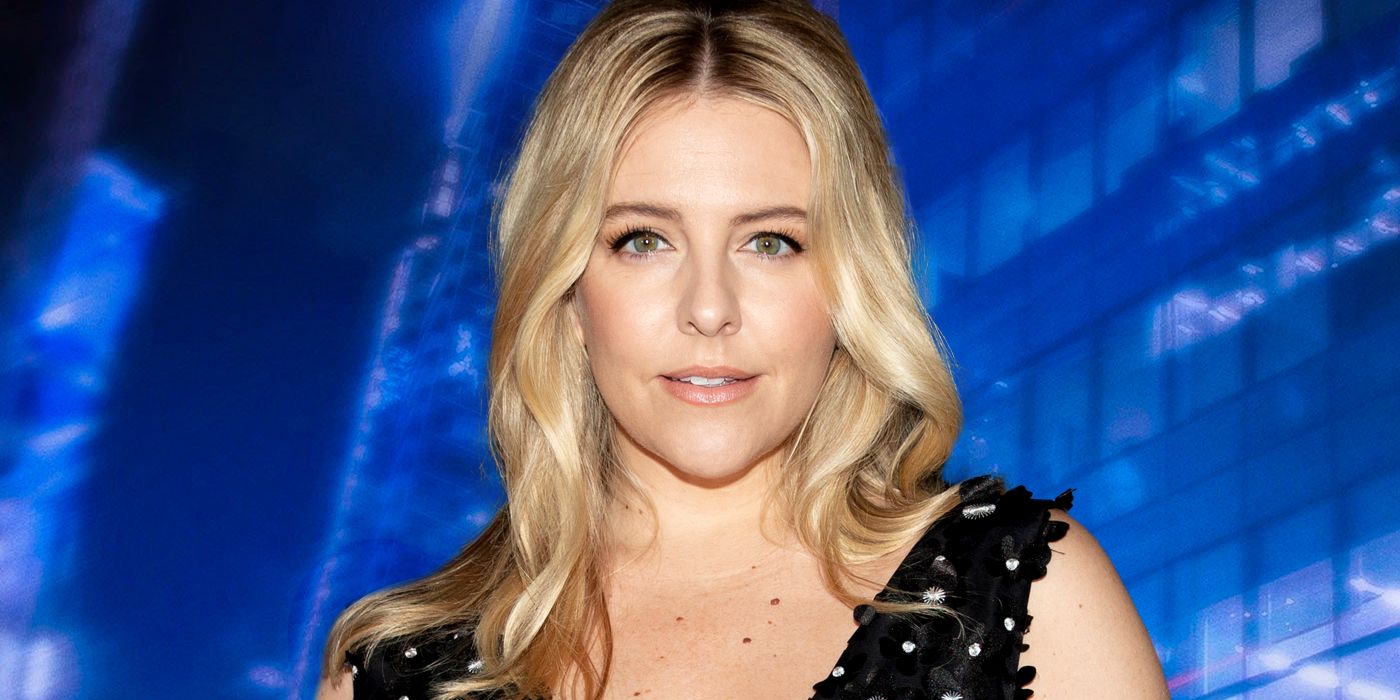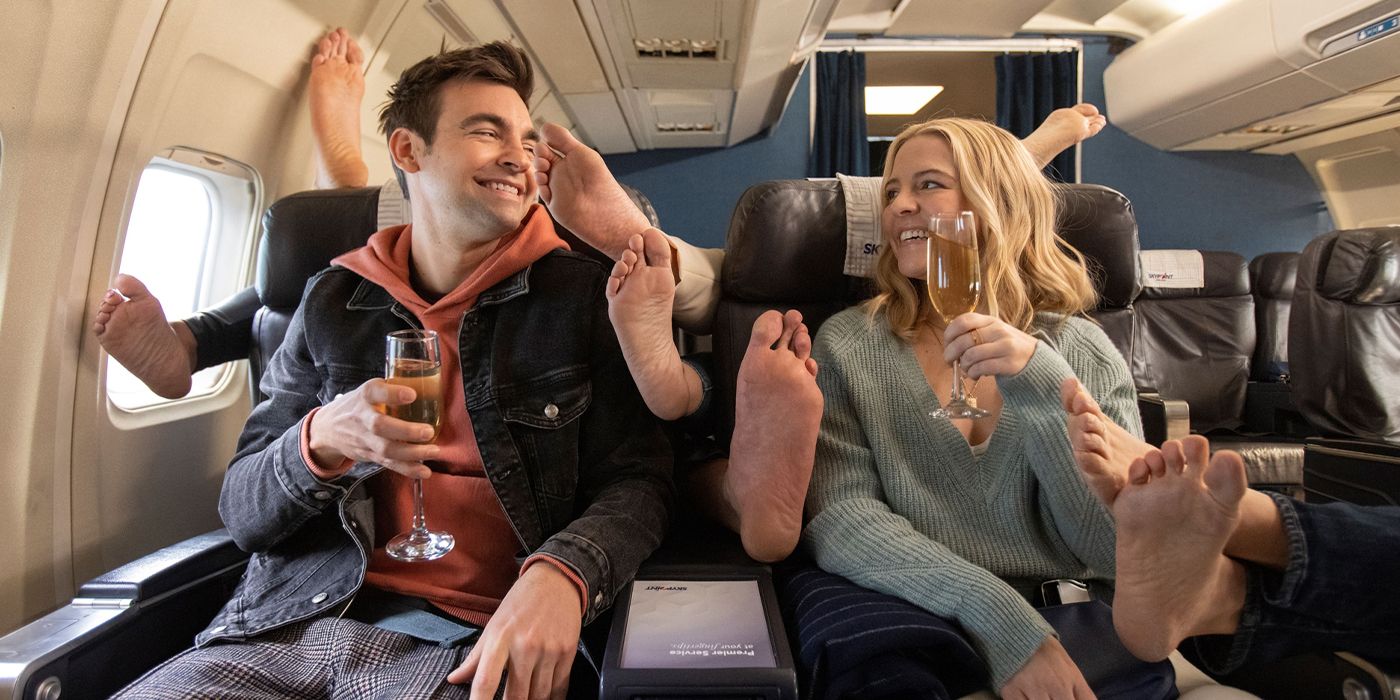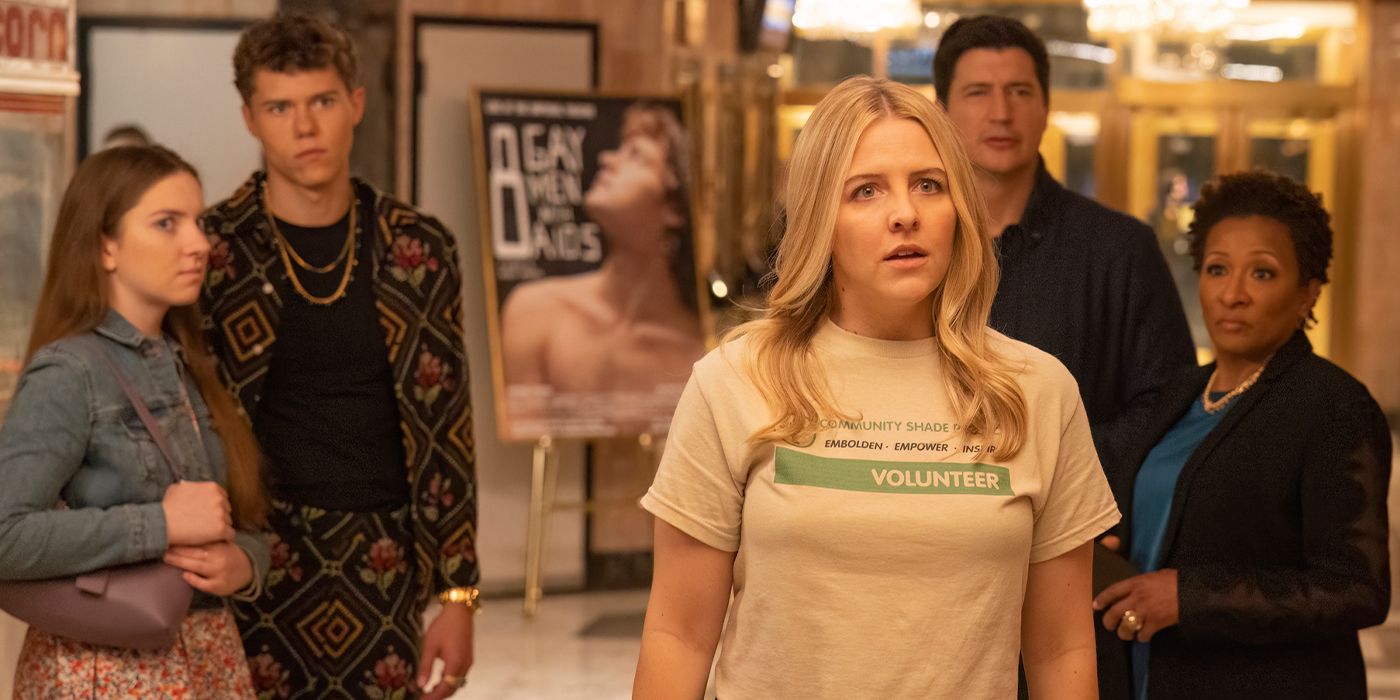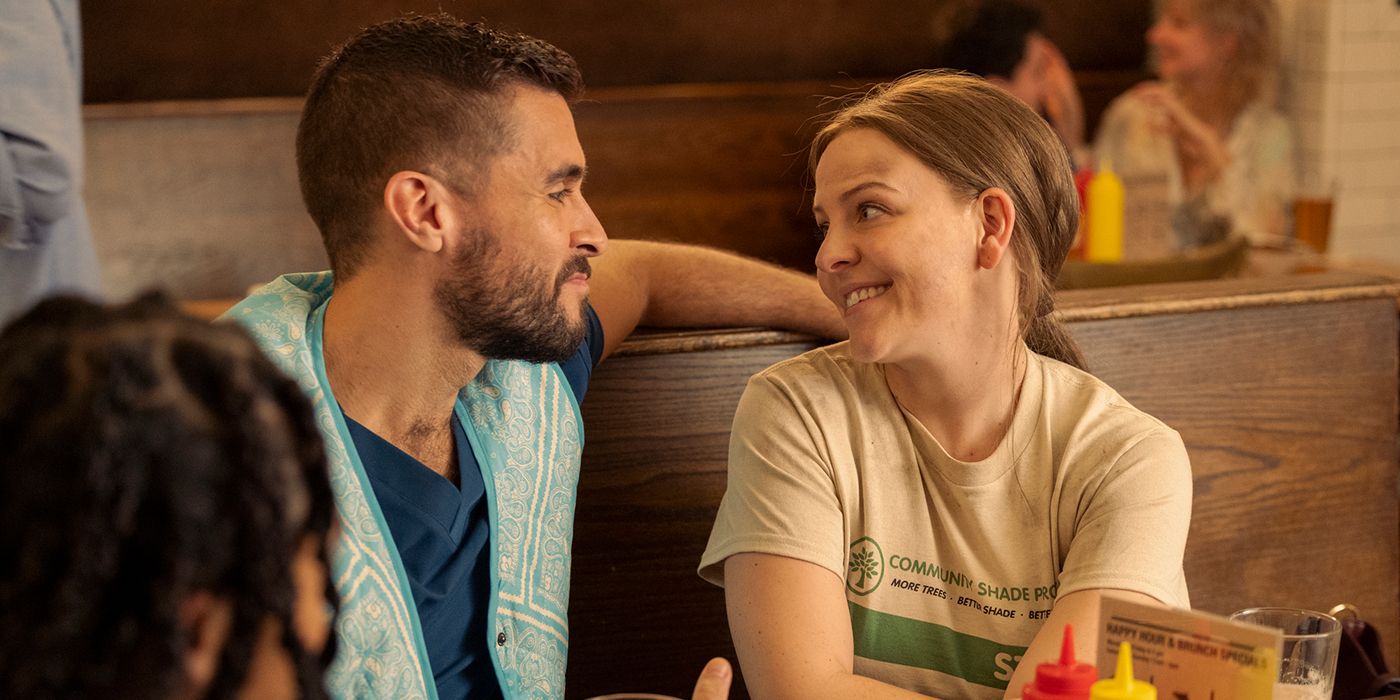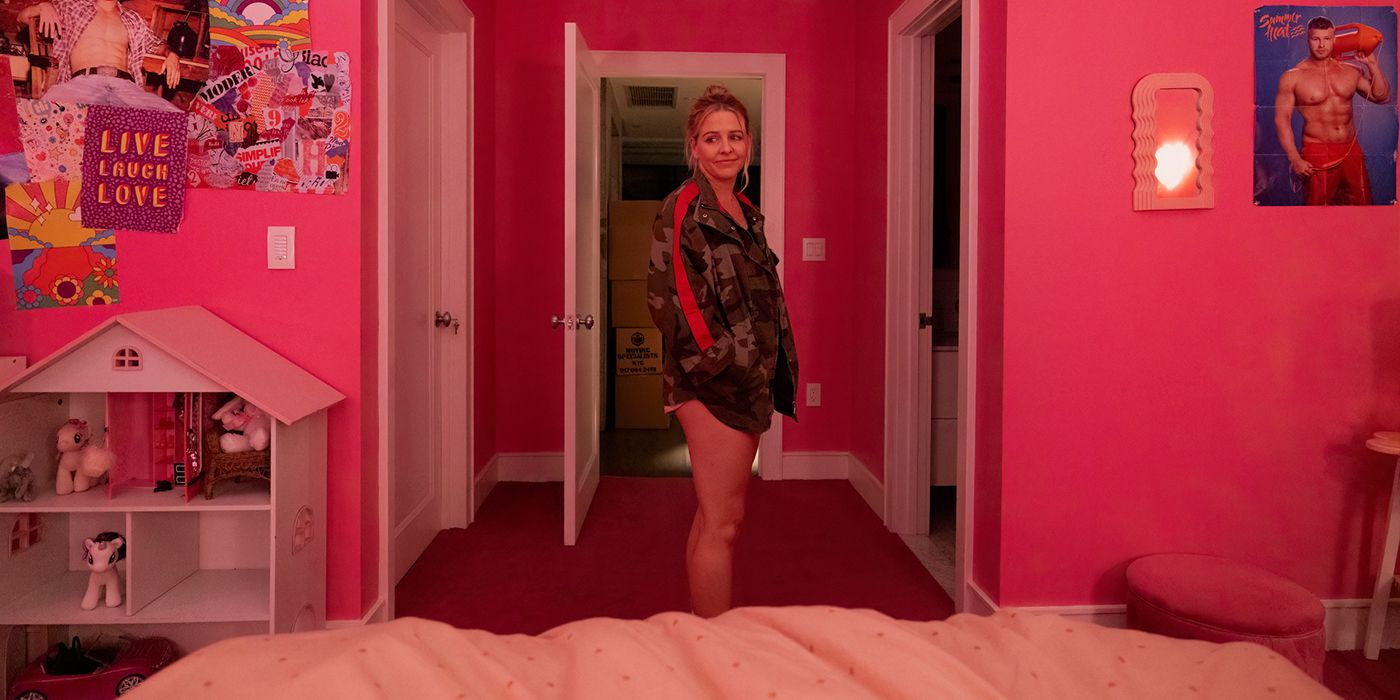Editor’s note: The below contains spoilers for The Other Two, Season 3, Episode 5.
Since its debut in 2019, The Other Two has received widespread critical acclaim to become one of the funniest shows on television. With the Max sitcom from former Saturday Night Live head writers Chris Kelly and Sarah Schneider now in its third season while continuing to brilliantly lampoon the industry with sincerity and mature humor, it’s about time the single-camera comedy picked up some major awards. Never trying too hard with its endless laughs and consistently sharp writing, the series manages to be a pristine entry among the best sitcoms ever thanks to its cast, including the incomparable Heléne Yorke. But it’s Episode 5 that really brings it all together in a very nuanced, enthralling moment between Yorke and co-star, Josh Segarra that proves The Other Two is one of our finest shows to date worthy of some glitzy hardware. In an exclusive interview with Collider, Yorke breaks down that heated scene, talks about her character Brooke’s biggest issues and what’s ahead in the remainder of Season 3.
Following Thursday’s latest episode, “Cary & Brooke Go to an AIDS Play,” the half-hour is one of TV’s best as we see the Dubek siblings, played by Yorke and Drew Tarver, trying to make the most of their hapless situations. While Cary (Tarver) makes various attempts to take back control of his relationship with Lucas (Fin Argus), Brooke (Yorke) is tired of helping the planet and “doing good” like her fiancé (and one of the show’s most underrated characters), Lance (Segarra), who is now a nurse. Instead, she tangles herself up most willingly into her brother Chase’s (Case Walker) drama after he falls in love with a “normal” girl in what is also one of the best Romeo+Juliet parodies ever. Heading back into the industry with the help of Shuli (Wanda Sykes), Yorke’s performance is one of the finest this season among her cohorts and is a true standout, especially as she tackles one of the hardest scenes in the episode alongside Segarra. In a moment that highlights a sincere, raw performance brimming with existentialism angst constructed from smart writing, the former Broadway star tells Collider in our Q&A all about that breakup scene and just how “deep” Brooke Dubek goes as she attempts to carry out more “good” this season, but as she teases, it’s a lot more complicated than that.
COLLIDER: I love this show so much — it’s so funny and refreshing, and I honestly feel like this is a show that is nothing like the other shows out there right now. With what you’ve been seeing from the reception and what you know about comedy too, what is it about this show that sets it apart from so many others?
HELÉNE YORKE: I think that this is an industry parody and a life parody in a way that you don’t see that often, or certainly that I don’t think there’s many that are as bold as this one. I think Chris [Kelly] and Sarah [Schneider], our creators, are pretty incredible in ways in which they push the boundaries and make you think about things that, of course, you’ve always thought about, but to see them in an entirely different way. I thought Episode 2 is a really good example of that, like being invisible in an industry because you’re not in the industry. I just think that it also represents and reflects queer relationships in a way that people haven’t seen before, it’s complicated characters, and this is a family that loves each other. I think it would be really easy for them to fall into the trap of, you know, this is the brother and sister absolutely ripping each other apart, but really they’re their own worst enemy.
And as far as comedy goes, I think it’s like comedy realism, to make this feel real and grounded in a way that feels authentic is deeply funny and stupid. I mean, I started watching Jury Duty recently, and I think it’s doing a really unique way of doing that, as well, obviously. It’s also just, more than anything – me and Drew talk about this all the time – we’re so lucky to be on a show that we would watch and be jealous of other people doing. It’s just rare to do writing that you love so much, you know?
No, I get it! So, Brooke is my favorite character on the show and I read that after shooting the pilot, your character and Drew’s were actually written for you, so I thought that was really interesting because it took more of a natural shape from there. But aside from the awesome writing creating this character, how did you make Brooke her own person? Was there a characteristic of your own that you added to her?
YORKE: Yeah, I always describe that she’s somebody that’s willing to dive into a pool, an empty pool, head first. She’s sort of like, “I’ll do it, I’ll try it!” And elements of my own life, like, I moved around a lot as a kid. We bounced around because of my dad’s job, and I was constantly being thrust into situations where it was like, “Okay, you’re 13, now make entirely new friends,” and I think there comes a bit of necessary fearlessness that comes with that. I think that, oftentimes, I bite myself in the ass. I get that quality a lot. I once went to a card shop in Philadelphia, and I had this card that said, “I’m so sorry I’ve been such an asshole, please forgive me,” and I bought, like, 10 of them. I was like, “I’m gonna need a stack of these.” It’s unintentional, it’s brash honesty, which I bring to my own life a lot. I’m not really afraid to voice the things about myself that I don’t think are necessarily great, but they are what they are, and I think I bring that to my work naturally.
I also just think I have sympathy for this character. I think, in many ways, again, these are situations that they put Brooke in that you could think, “Oh, she’s such a bad person,” or, “She’s this hot mess,” or something like that, but I think that that’s reductive. I think that these are things that we wrestle with, like the innate desire to be good, to be seen as good, and doing a good job, or like good to ourselves, or that anything we need to be doing needs to live up to some invisible standard, and I think that they do that really well. I think that I see her in a way that is sympathetic, or I try to.
I totally agree. When I see her, I see a very endearing charm; she has this kind of blind faith that things are going to work out but when she steps into it, her anxiety and insecurities kind of take over. And looking into Episode 5 now — let’s get into one of the fun moments in this episode. The opening scene where Streeter’s telling Brooke and Cary that he and Pat are breaking up — how do you guys keep a straight face on set?
YORKE: I think the greatest gift of doing this show is the amount of respect I have for these people, and the answer to your question of how you keep a straight face is you just don’t [laughs]. Ultimately, you hope that there’s a clean take. Because Ken [Marino] will throw all sorts of random shit at you, and it’s just the best, and I admire him so much as an actor, and Molly [Shannon], of course. And to be on the show with those two powerhouse comedy forces has been one of the honors of my career. I mean, Drew and I have become like actual siblings in doing this, I think he’s one of the funniest people alive. Watching Case Walker grow up over the course of the five years that we’ve known him and become this wonderful young man. I mean, again, it’s like I say that great writing is rare, but great groups are even more rare and this is definitely one of those cases. Yeah, I mean, that’s what I have to say about that; it’s the f*cking best! [laughs]
It is! Now I want to talk about that scene between you and Josh Segarra’s Lance because it is a great scene. This whole season, we’ve been seeing some minor quarreling between the two, but the AIDS play — Night Three to be exact — was the time when Lance found out about her wanting to go back to the industry with Shuli. I thought it was so interesting that she lied to him, saying, “Oh, I’m having an affair with Shuli,” and he told her, “No, it’s okay, you can be honest with me.” And I’m wondering, why do you think it’s so hard for her to be honest with him about what she really wants?
YORKE: I think that she doesn’t want to see the truth herself. She knows what the truth is, but it’s embarrassing to her. I think we lie because we are embarrassed or ashamed of the truth, and not wanting to disappoint somebody we care about. I think that Brooke does that a lot, which is, you know, in trying and working so hard to do the right thing, she often does the wrong thing and hurts people in the process, and I think that’s certainly the case there.
I want to dive into that scene because it was executed beautifully, and I was captivated by it. It was enthralling; I was at the edge of my seat for this very tense moment. But it’s a tough scene, no doubt. I really do think this season you will all get nominations for the performances and writing because that scene was raw and real. What went into building that moment? As the kids say, you guys served no crumbs. How do you build that tension? How do you build such strong emotions of being pent-up, angry, and frustrated?
YORKE: So I’m a stickler about memorization. That was a considerable amount of dialogue that covered a lot of ground, especially emotionally. It was something that I prepared for, you know, a number of days. I think memorization is a muscle, and I certainly flex it enough, and I feel good about my ability to do so. I also come from the theater, and so does Josh [Segarra], so he and I have known each other for about 16 years, coming up together in New York. So I think long-form scene work like that is something that’s kind of built into us, and it’s exciting to get something so meaty, so juicy, that covers — you know, she starts off with this silly lie that she’s sleeping with Shuli, which is obviously ridiculous, she pulls out on the lie and she turns it around on him. And I think that that’s a classic argument technique, but then to ride the wave of that and then to go into like, “Yeah, we all know that you’re so good,” a biting, shitty remark to put herself back on top, it’s like, “Who’s on top? Who’s right?”
The way that Sarah Schneider described it to me is that you can’t really tell at any moment like both are kind of right. Like, sure, it’s easy to say Brooke is so wrong in this scenario, but I think that’s too easy. I mean, you know, she perceived that he was making fun of her in that scene with their friends in the bar when she’s covered in dirt, and you know, I think riding a wave of a scene, especially a scene that length, takes preparation, and a wonderful actor that you feel like is catching you, and playing back and forth with you. It’s really like a volley game and certainly, knowing Josh as long as I have, but also playing Brooke to his Lance for three seasons, it was just so exciting to read a script and to get material like that and know that that was what the day ahead was going to be. It’s tough, but it just helps so much to ride the wave with the person who’s just so with you. And yeah, by the end I think it pays off. The emotion starts to feel so real if you’re fighting with somebody and you are there with them, and you are feeling these things for them. For me anyway, I can’t speak to other actors, I feel that I go there very naturally.
So, one of the things I’ve noticed, we’ve talked about it, Brooke’s insecure; she’s got a little bit of defensiveness in her, and a lot of that, I feel like, the writers have kind of added in from maybe a family-type trauma. We’ve learned a little bit about her past through a little dialogue and some past instances. Are we going to understand more of her roots later this season, and understand more of why she is the way she is?
YORKE: I don’t know that there is like a delve into an origin story of why she is the way that she is other than anything that exists in my head that I brought to my work myself. You know, I will say, as an actor, especially in moments like 2020 when people were on noble quests, and this is what the basis of the entire season is, you do feel like, “What am I doing? What I do is nothing. I’m not helping anyone. I’m on a comedy show, I’m like auditioning and getting rejected constantly.” It’s just sort of, you know, what am I, what is my place in this world? What’s the mark that I’ll leave, I guess? And you’re sort of like, “I guess nothing,” and it’s a humbling and shitty thing to realize, broadly, but, no, there’s not like a huge delve into the origin story. It’s just stuff that I feel that I, myself, bring into my work, and then especially over the course of three seasons, this is a person who hasn’t had success until this current mid-30 point in her life. And, is it enough? And I think that that’s the interesting exploration this year, is that these are people that are doing well, and is well good enough?
Because I’ve had this conversation recently with this very successful songwriter friend of mine, and it’s just like, “When is anything that you have enough? When are you ever going to be able to relax?” And it’s funny thinking about it now, even just talking to you, like, what is that moment? Is it a nomination? Is it some big job that gets you some front row of fashion? Like, what is that thing? When is it enough? And I ask myself that all the time, especially at my age. It’s like, “Oh if you really stop to think about it, what’s important?” And I think that’s really what the crest of the season leads towards. For myself, I guess I would just say, like, if you really stop and think about it, you’re like, “No, I’m actually really good,” but it takes foresight, and that takes a lot of work. And, you know, Brooke hasn’t done that work.
Wow, there’s so much that you said there that just hit me like a train. It’s really, it’s very smart.
YORKE: The person I was talking to — I was sitting in this insane apartment he bought, and it’s just like, “When is that? When is that moment?” And especially when you spend all of your 20s and all of your early 30s pushing, pushing, pushing, pushing, and then, especially social media, and you’re comparing yourself to people all the time, and it’s like, when is it? Is this nothing, or are you there, or what is it?
So true. I will say, as an aside, I’ve loved your social media posts. There’s one of them — obviously, the toilet paper stuff with your husband is hilarious — but the thing about being married in your 30s, your 40s, like who cares? Why is there a timeline? I have had terrible relationships. [laughs]
YORKE: No, you do until you meet the person you marry. That’s the point!
Yeah, exactly. It’s just one of those things, like, when is it gonna happen? Like, when it happens, it happens? Now I’m like, “I’m going to listen to Heléne. What would Heléne do?” So I just think like that now. [laughs]
YORKE: That’s so nice! I really did worry about it all the goddamn time. I spent my whole life f*cking worried about it, and then I had it, and I was like, “I’ll never be alone ever again.” So, enjoy your time [laughs].
[Laughs] I will. Before I let you go, with the season and how everything is going, is there something you can tease us about, maybe like a Lance and Brooke reunion? Is that happening? I love those two. Like, what more can we expect for the remainder of the season?
YORKE: I don’t even want to spoil it for you! I mean, you know, she goes pretty deep into trying to be good and basically realizes that she can use the industry to be good. It’s kind of the bullshit she gets involved with as a result of that.
New episodes of The Other Two stream on Max every Thursday.

